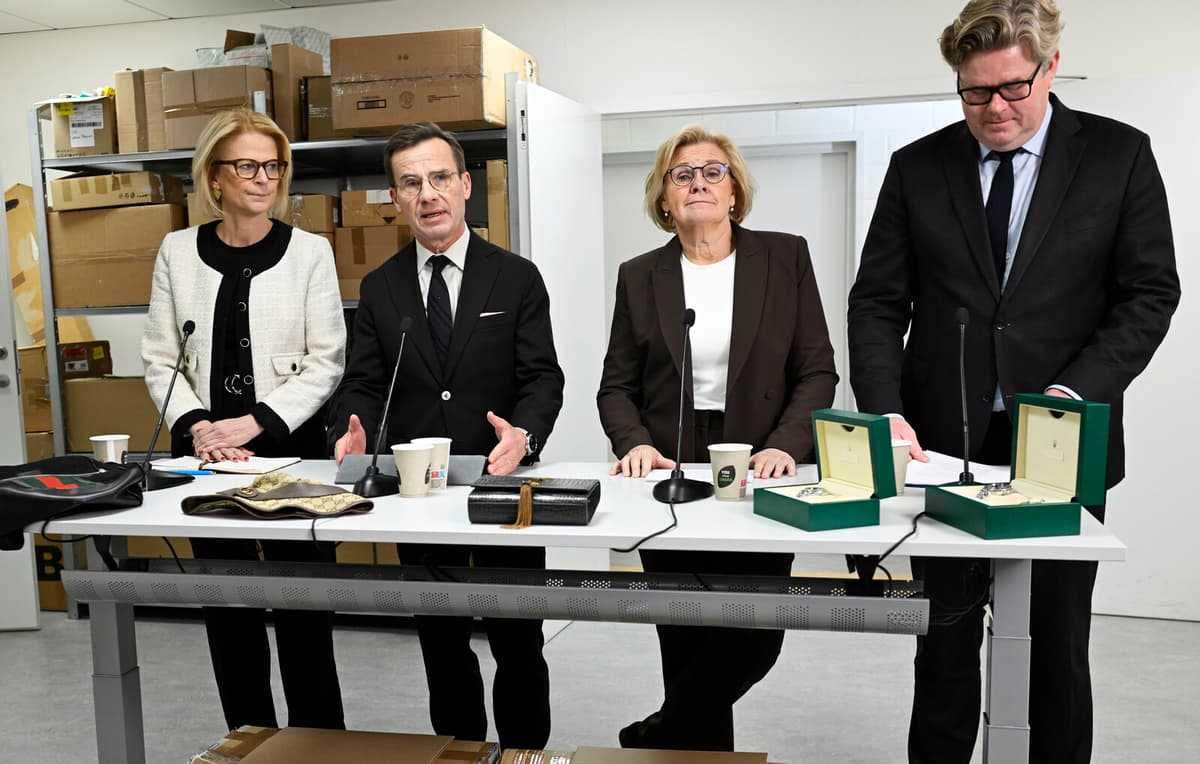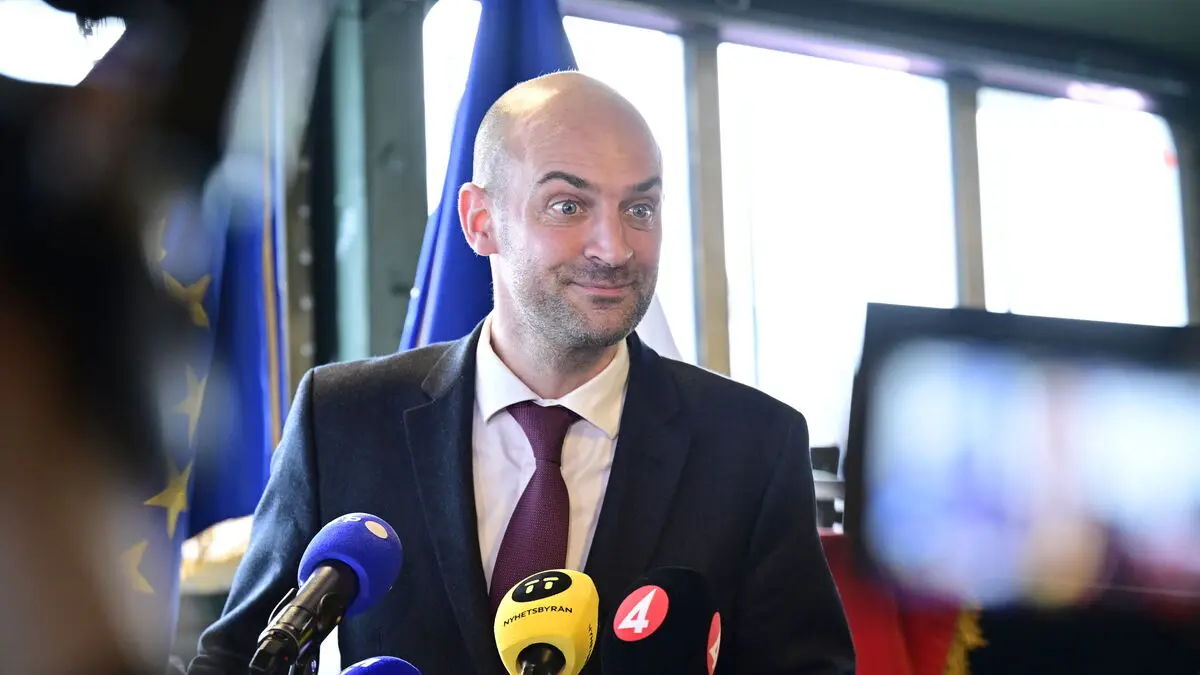Sweden is facing the "largest criminal law reform since the Penal Code came into force", according to Prime Minister Ulf Kristersson (M).
The new forfeiture law, which comes into force on Friday, means that the police will be able to seize cars, watches, and clothes from individuals with suspected links to criminality – but without concrete criminal suspicions.
It's about seizing the kind of property where it's obvious that a crime has been committed behind the scenes, says Kristersson at a press conference together with the Finance Minister, Justice Minister, and National Police Commissioner.
With the new law in place, the police and government hope to strike at the economy of organized crime, which is estimated to be worth 100-150 billion kronor per year.
Criticism of legal uncertainty
At the same time, the law has been criticized, among others by the Chancellor of Justice, who in a referral response warned of inadequate legal certainty, unclear evidence requirements, and searches and seizures on flimsy grounds.
According to Justice Minister Gunnar Strömmer (M), the finalized law meets high legal certainty requirements. But at the same time, it must be viewed with new eyes, he thinks.
We're building something that lies outside traditional models. Not all guarantees that apply to legal certainty in criminal cases exist when you do things outside of that.
The key question is what evidence requirement prosecutors will need to meet in order to investigate seizures, explains Strömmer.
I'll be completely honest and say that we've taken the offensive side. Otherwise, this won't have the intended effect. But I still want to emphasize that in the end, it's a court that will make a decision.
Police ready
According to National Police Commissioner Petra Lundh, the authority is well-prepared. As early as Friday, they will start working on ready-made cases in the police regions.
We already have a national effort and everyone knows exactly what to do on Friday. Then we've had thorough training efforts for a very large part of our staff, she says.
During the press conference, the Prime Minister also announced that the government is positive about the police being able to use real-time facial recognition in the future. Exactly how this will work is not yet clear.
Corrected: An earlier version contained an error about the police's effort in a quote.
Soon, the police will be able to carry out seizures of goods without requiring a link to a crime. Then, a prosecutor will investigate, who will hand over the case to the district court, which will make the final decision on forfeiture.
For example, if we've observed people who we know are part of criminal networks and who drive around in luxury cars, we can seize the cars. It's not nearly as strict evidence requirements as when you need to prove a crime. If the person belongs to a network and simultaneously has zero taxes, the burden of explanation will shift to the person, says National Police Commissioner Petra Lundh.
How long does such a case take?
It entirely depends on how much investigation is required. But it can probably take several months.
Can you own a Rolex without being able to explain where it came from on Friday?
If someone belongs to a criminal organization and we know that person has a Rolex, they should probably be a little worried.






